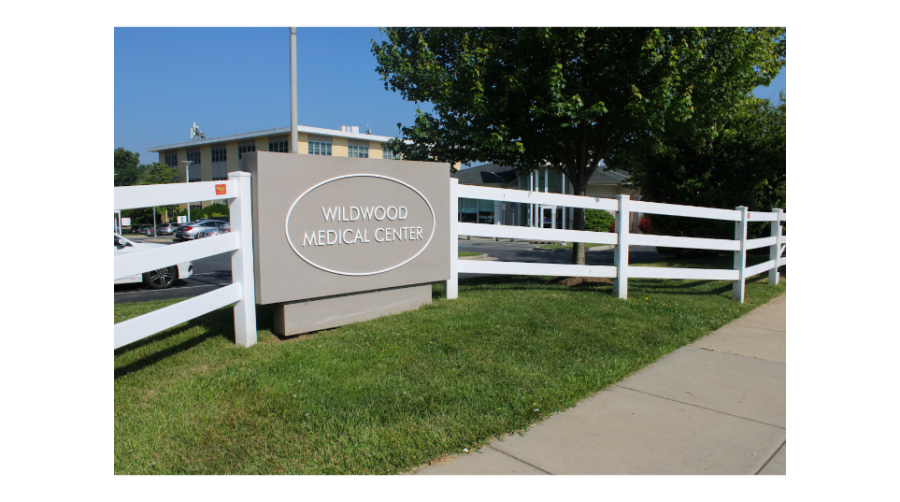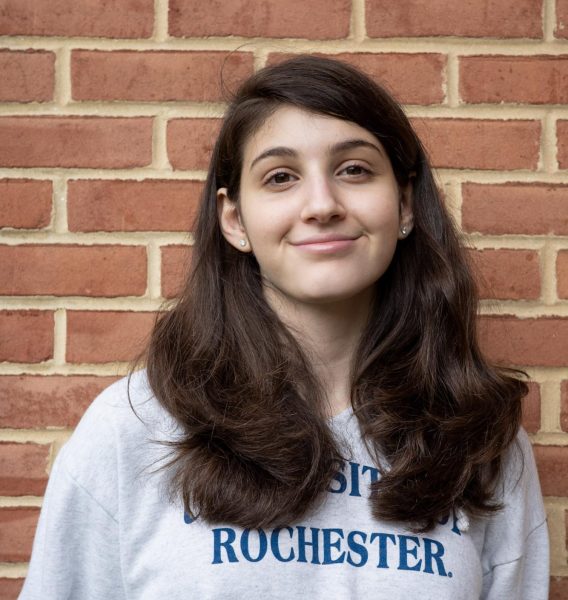“Abortions are happening right in our backyards”: Protesters continue their campaign against local abortion clinic
“I don’t think a lot of people realize that there are eight-month-old babies being aborted at the Wildwood Medical Center where people go for orthodontist appointments and grocery shopping,” Bethesda resident Jill Gadwood said.
June 7, 2023
On a cold February afternoon, cars speed down Old Georgetown Road, the rain pattering on their roofs as they approach the Wildwood Shopping Center. Multiple figures come into view as the wipers clear the raindrops off the windshield. Standing on the sidewalk next to the Sandy Spring Bank, protesters in ponchos and raincoats carry signs reading “Pray To End Abortion,” “Ask me about healing after abortion” and “Pregnant? Need Help? Contact the Gabriel Project.” The protesters surround the late Dr. LeRoy Carhart’s late-term abortion clinic in the Wildwood Medical Center, located behind the bank and to the left of the shopping center.
40 Days for Life, a non-denominational Christian pro-life group, organizes the protests outside Carhart’s office. The organization also runs hundreds of campaigns in over fifty countries worldwide. Jill Gadwood, a Bethesda resident, coordinates the Bethesda campaign, where she and about 30 other protesters stand on the sidewalk holding signs and praying. Gadwood and the other protesters gather outside of the clinic almost every day of the week.
Gadwood grew up in California surrounded by pro-life values. She began volunteering with 40 Days for Life in 2015 when she lived in Manhattan. In 2016, she moved to Bethesda with her husband and two children, where she started a local campaign the following year. According to Gadwood, the protesters aim to “change hearts and minds” and be an “uplifting presence for life.” Gadwood also volunteers with other pro-life organizations, such as the Gabriel Project and Silent No More, which provide financial and emotional support to pregnant and postpartum women.
“Late-term abortions are happening right in our backyards,” Gadwood said. “I don’t think a lot of people realize that there are eight-month-old babies being aborted at the Wildwood Medical Center where people go for orthodontist appointments and grocery shopping.”
While protesting, Gadwood and the other protesters receive a wide range of reactions from onlookers. Drivers flash a thumbs-up or the middle finger and sound positive or negative honks. Sometimes, people even want to converse with the protesters about the topic, she said.
According to Gadwood, some of the women who are protesting either had an abortion or considered having one.
“We have people participating who have had abortions before and have come to regret it,” Gadwood said. “They see their participation as a way to make up for the loss of their baby.”
For many protesters, pro-life values stem from personal religious beliefs, according to Gadwood.
“The pro-life movement is a cause that unites Christians across different denominations,” Gadwood said, “because we all believe in the dignity of human life.”
Dr. Carhart was one of the few late-term abortion providers in the nation. He died on April 28 in hospice in Bellevue, Nebraska from liver cancer. Carhart was the Medical Director of Clinics for Abortion and Reproductive Excellence (CARE) and provided abortions in clinics located in Nebraska and Maryland. His family announced his passing via social media, stating that his death would not affect his clinics and that normal operations would continue.
Carhart’s clinics specialize in late-term abortions, which usually occur during the third trimester. According to an OB-GYN specializing in high-risk pregnancies, the two primary reasons women receive abortions in the third trimester are fetal anomalies and potentially fatal complications that endanger the lives of the fetus and the mother.
Throughout his life, Dr. Carhart faced numerous acts of violence because of his career. In 1991, Carhart’s farm in Nebraska burned down — resulting in the deaths of numerous farm animals and family pets. Years later, in an interview with the Washington Post, he said the day after the fire, he received a note linking the death of his horses to the abortions he performed. The note led him to believe the fire was arson, but authorities never determined the cause.
In 2009, his close friend and colleague Dr. George Tiller, who also provided late-term abortions, was shot and killed by an abortion opponent.
Carhart and Tiller were not the only victims of anti-abortion violence. In recent years, the number of violent incidents toward abortion providers has drastically increased. The National Abortion Federation reported that between 2020 and 2021, the number of stalkings increased by 600%, clinic invasions by 129% and assaults by 128%. These acts of violence make it difficult for abortion providers to operate.
In 2017, the Maryland Coalition for Life, a pro-life group, bought the building where Carhart’s Germantown clinic was located in an attempt to prevent him from providing abortions. This left Carhart and his staff without a place to conduct business.
“We looked at other spaces and unfortunately it’s really hard to find contractors, vendors and landlords for abortion clinics because of the harassment,” CARE spokesperson Chelsea Souder said in an interview with The Intercept. “We had two other possible places and they both fell through when the [anti-abortion activists] got wind of where and started making threats. We were really lucky to find this place.”
The clinic in Bethesda is more secure than the former Germantown clinic, as local police regularly canvas the building and parking lot to ensure that staff and patients are safe when entering and exiting the building. Because the clinic and adjacent Sandy Spring Bank have the same owners, the protesters cannot stand on either property; the closest they can stand is on the main road.
Generally, the protesters don’t obstruct the clinic and its patients because from where they stand, they can’t be seen or heard from inside the medical center, according to Souder. CARE recommends that patients ignore the protesters and not interact with them when entering the building. The medical center’s parking lot is located towards the back of the building, ensuring patients do not have to walk by the protesters.
“Everything that all the anti-abortion extremists do actually drives us harder into our work,” Souder said in an interview with Elite Daily. “Essentially, it kind of has the opposite effect.”











